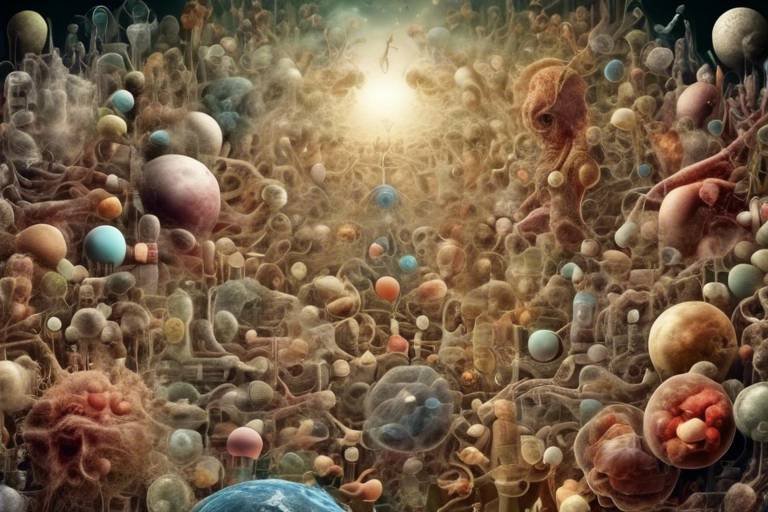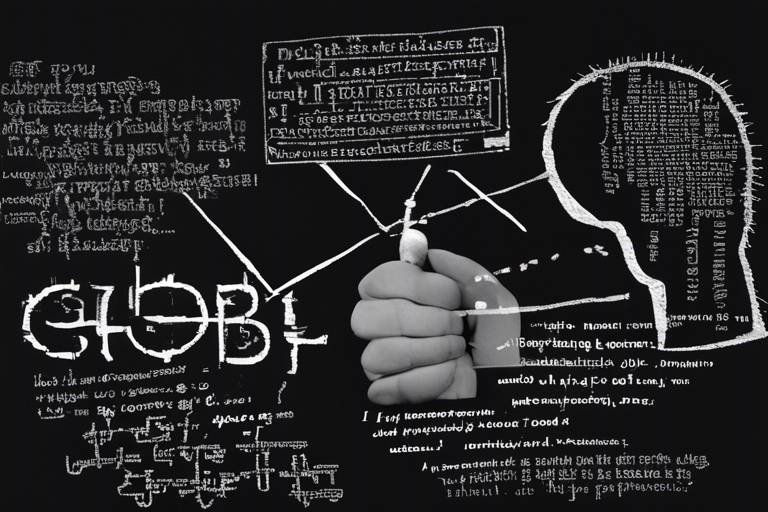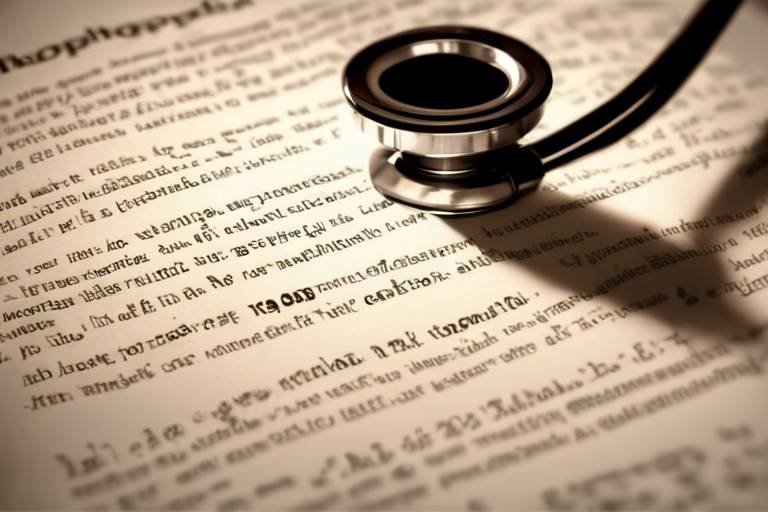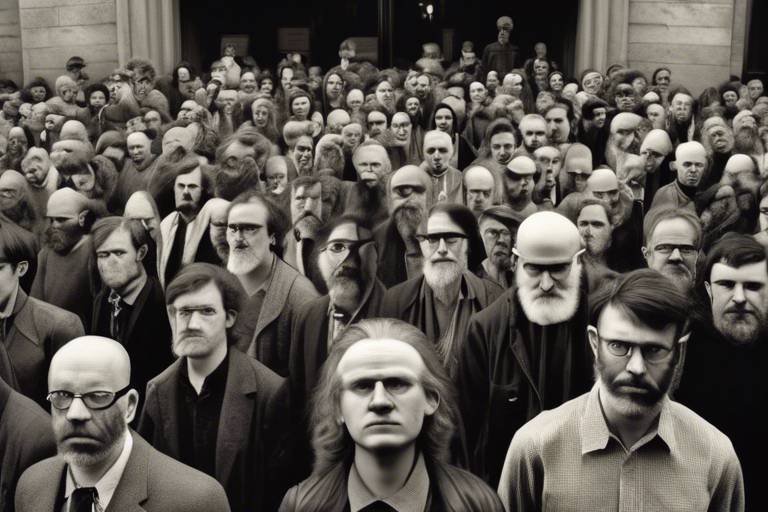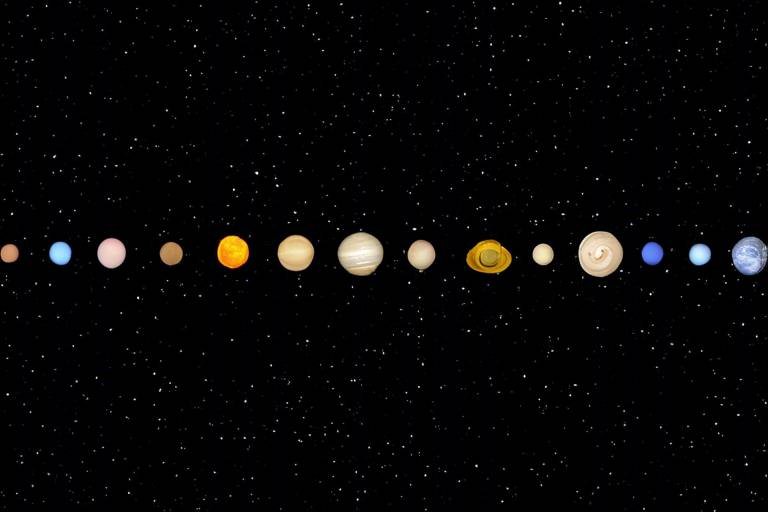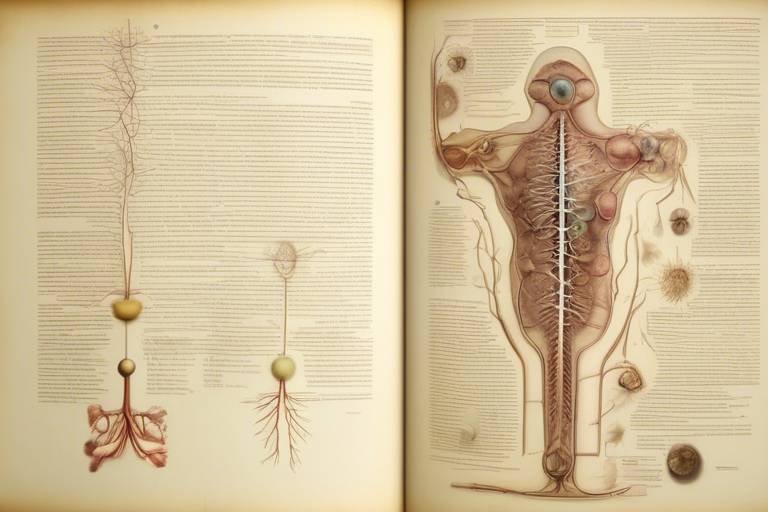Overlapping Realms of Philosophy and Microbiology
Have you ever pondered the microscopic world that exists around us, a realm teeming with life that is invisible to the naked eye? The intersection of philosophy and microbiology opens up a fascinating dialogue about existence, identity, and ethics. It’s like peering through a tiny window into a universe where tiny organisms play significant roles in shaping our lives and the environment. This article invites you on a journey to explore how philosophical inquiry can deepen our understanding of these minute beings, their implications for our moral frameworks, and what they reveal about the nature of life itself.
Microorganisms, despite their diminutive size, wield immense power in our ecosystems. They are the unsung heroes of nutrient cycling, decomposition, and even human health. Yet, their existence raises profound questions: What does it mean to be alive? How do we define life when it comes to entities that are so different from us? Philosophy provides the tools to navigate these questions, offering frameworks that help us grapple with the complexities of microbial life.
As we delve deeper, we’ll uncover how philosophical perspectives can illuminate our understanding of microbes. For instance, existentialism invites us to reflect on the meaning of life, even at the microbial level. Imagine a world where tiny bacteria and fungi are not just passive players but active agents in their environments, contributing to the intricate web of life. This perspective challenges us to rethink our assumptions about agency and autonomy, pushing the boundaries of what we consider to be "alive."
Moreover, the ethical implications of manipulating microbial life for human benefit cannot be overlooked. As we harness the power of genetic engineering and synthetic biology, we must ask ourselves: What are the moral responsibilities we hold towards these microorganisms? Are we justified in altering their genetic makeup for our purposes, or does that encroach upon a form of microbial integrity? These questions are not merely academic; they resonate with the ethical dilemmas we face in our rapidly advancing technological landscape.
In this exploration, we will also touch on the impact of microbial life on human identity. Our understanding of microbiomes—those communities of microorganisms living in and on us—has transformed our perception of health, identity, and community. It’s a reminder that we are not solitary beings but part of a larger ecosystem where every microbe plays a role in our existence. This interconnectedness challenges the traditional boundaries of self and community, urging us to recognize the profound relationships we share with the microbial world.
As we navigate through these themes, we’ll also consider cultural perspectives on microbes. Different societies have unique beliefs and practices related to microorganisms, affecting how they approach hygiene, health, and disease management. This cultural lens enriches our understanding of how microbes are perceived globally and highlights the diversity of human experience in relation to the microbial realm.
In summary, the overlapping realms of philosophy and microbiology offer a rich tapestry of inquiry that challenges our understanding of life, ethics, and identity. By examining these connections, we not only enhance our scientific knowledge but also deepen our philosophical reflections on existence itself. So, as we embark on this exploration, let’s keep our minds open to the surprising revelations that await us in the microscopic world.
- What is the significance of microorganisms in our ecosystem?
Microorganisms play crucial roles in nutrient cycling, decomposition, and maintaining the balance of ecosystems. They are essential for the health of the planet. - How does philosophy relate to microbiology?
Philosophy provides frameworks for understanding the implications of microbial life on ethics, identity, and the nature of existence, prompting deeper reflections on what it means to be alive. - What ethical considerations arise from manipulating microbial life?
As we engage in genetic engineering and synthetic biology, we must consider the moral implications of our actions and our responsibilities towards these microorganisms. - How do cultural perspectives influence our understanding of microbes?
Different cultures have varying beliefs about microorganisms, which can affect health practices and societal approaches to hygiene and disease management.

The Nature of Microbial Life
Understanding what constitutes microbial life is fundamental to both philosophy and microbiology. Microorganisms, often referred to as microbes, are a diverse group of life forms that are typically too small to be seen with the naked eye. They include bacteria, archaea, fungi, viruses, and protozoa. Despite their microscopic size, microbes play a monumental role in the ecosystem and the very fabric of life on Earth. Imagine a world without these tiny beings; it would be a barren landscape devoid of essential processes like decomposition, nutrient cycling, and even the oxygen we breathe!
Microbes are incredibly versatile and can thrive in a variety of environments, from the deepest ocean trenches to the human gut. Their adaptability is nothing short of astonishing. For example, certain bacteria can survive in extreme conditions such as high radiation, acidity, or salinity. This resilience raises intriguing questions about the nature of life itself. What does it mean to be alive? Are these microorganisms simply biological machines, or do they possess qualities that challenge our traditional definitions of life?
In the realm of microbiology, microbes are categorized based on several characteristics, including:
- Cell Structure: Microbes can be unicellular or multicellular, with some having complex structures like cell walls and membranes.
- Metabolism: They can be autotrophic (producing their own food) or heterotrophic (relying on other organisms for sustenance).
- Reproduction: Microbes reproduce through various methods, including binary fission, budding, and spores.
This classification not only helps scientists understand microbial life but also emphasizes their significance in the broader context of life on Earth. For instance, microbes are crucial for processes like fermentation, which is used in food production, and nitrogen fixation, which enriches soil. Furthermore, they are essential for human health, residing in our guts and influencing our immune systems and digestion. The human microbiome, a complex community of microorganisms living in and on our bodies, is a testament to the profound impact microbes have on our identity and well-being.
Exploring the nature of microbial life opens up fascinating philosophical inquiries. If these tiny organisms are integral to our survival and health, what does that say about our relationship with them? Are we merely hosts for these microbes, or do they play a role in defining who we are? The more we delve into the world of microbes, the more we realize that they are not just insignificant specks; they are vibrant, dynamic entities that challenge our perceptions of life and existence.
- What are the main types of microorganisms? Microorganisms primarily include bacteria, archaea, fungi, viruses, and protozoa.
- How do microbes impact human health? Microbes play a crucial role in digestion, immunity, and overall health, particularly through the human microbiome.
- Can microbes survive in extreme environments? Yes, many microbes are extremophiles, thriving in harsh conditions like high temperatures, acidity, or salinity.
- Why are microbes important for ecosystems? They are essential for nutrient cycling, decomposition, and maintaining the balance of ecosystems.

Philosophical Perspectives on Microbes
When we think about microbes, we often picture tiny organisms that are invisible to the naked eye. However, the philosophical implications of these minute life forms are anything but small. Philosophers have long debated the nature of existence, consciousness, and agency, and when we apply these discussions to microbes, we uncover a fascinating tapestry of ideas that challenge our understanding of life itself. Microbes, as the most abundant and diverse organisms on Earth, force us to reconsider what it means to be 'alive' and how we relate to other forms of existence in the grand scheme of things.
Different philosophical frameworks offer unique insights into the role of microbes in our world. For instance, utilitarianism might focus on the benefits that microbial life provides, such as their role in decomposition and nutrient cycling, ultimately contributing to human survival. On the other hand, deontological ethics may emphasize the moral obligations we have towards these organisms, especially as we manipulate them for our own purposes. This raises important questions: Do microbes have intrinsic value? Should we consider their welfare in our scientific endeavors?
Existentialism, a philosophy that grapples with the meaning of life, can also provide a lens through which to view microbial existence. Existentialists argue that individuals must create their own meaning in a seemingly indifferent universe. If we apply this to microbes, we might ask: Do these tiny beings have their own 'existential' struggles? Are they merely passive participants in ecosystems, or do they play an active role in shaping their environments? This perspective can deepen our appreciation for microbial life, recognizing that even the smallest organisms contribute to the intricate web of existence.
Furthermore, the concept of microbial agency challenges traditional notions of agency that have predominantly been applied to humans. Can we attribute decision-making capabilities to microbes? While they lack a nervous system, their behaviors—such as forming biofilms or engaging in symbiotic relationships—suggest a level of interaction and adaptation that invites us to reconsider how we define autonomy. This philosophical exploration can lead to a more nuanced understanding of life, blurring the lines between the conscious and the unconscious.
As we delve deeper into the ethics of manipulating microbial life, the implications become even more profound. With advancements in genetic engineering and synthetic biology, we are now able to alter microbial genomes to serve human needs, from producing insulin to cleaning up oil spills. However, this raises ethical dilemmas: What responsibilities do we have towards these engineered microbes? Are we playing God, or are we merely facilitators of natural processes? The answers to these questions are not straightforward and require careful philosophical consideration.
In summary, the philosophical perspectives on microbes are rich and varied, prompting us to reflect on our relationship with these organisms. By examining the ethical, existential, and agency-related questions that arise from our interactions with microbial life, we can gain a deeper understanding of not only the microbes themselves but also our place in the larger tapestry of life on Earth.
- What is the significance of studying microbes from a philosophical perspective?
Studying microbes philosophically helps us understand their role in ecosystems, the ethical implications of manipulating them, and how they challenge our concepts of life and agency. - Can microbes be considered agents in their own right?
While microbes lack consciousness, their behaviors and interactions suggest a form of agency that invites philosophical inquiry into their decision-making processes. - What ethical concerns arise from manipulating microbial life?
Ethical concerns include the potential consequences of genetic engineering, the intrinsic value of microbes, and our responsibilities towards these organisms.

Existentialism and Microbial Existence
When we dive into the philosophical realm of existentialism, we often ponder the profound questions of life, purpose, and existence. But have you ever thought about how these inquiries extend even to the tiniest forms of life—microbes? Existentialism, with its focus on individual experience and the search for meaning, invites us to reflect on the existence of microorganisms in our world. Just as humans grapple with their identity and purpose, microbes, too, exist within a complex web of life that raises questions about their own 'being.'
This leads us to consider: What does it mean for a microbe to exist? Unlike humans, microbes do not possess consciousness or self-awareness, yet they play vital roles in the ecosystems they inhabit. In a way, they are the unsung heroes of our planet, facilitating processes like decomposition and nutrient cycling. Their existence challenges us to rethink the notion of meaning and purpose. Are they merely biological machines, or do they contribute to the larger tapestry of life in a way that is significant and meaningful?
Existentialist thinkers like Jean-Paul Sartre and Albert Camus emphasized the importance of individual choice and responsibility. While microbes may not make conscious choices, their interactions and behaviors can be seen as a form of agency within their environment. For instance, consider how certain bacteria can adapt to extreme conditions or develop resistance to antibiotics. This adaptability can be likened to existentialist principles where individuals must navigate their circumstances and make choices, albeit in a biological context.
Moreover, the existence of microbes prompts us to ask questions about interconnectedness. Just as humans are influenced by their relationships and societal structures, microbes exist in communities that shape their behaviors and functions. This interconnectedness can be compared to the existentialist idea that our identities are formed through interactions with others. Microbial communities, such as those found in our gut, illustrate how life is not a solitary journey but a shared experience, raising the question: Can we find meaning in our connections with these microscopic beings?
To illustrate this further, consider the following table that outlines some key existential questions and their microbial counterparts:
| Existential Question | Microbial Counterpart |
|---|---|
| What is the purpose of life? | How do microbes contribute to ecosystem health? |
| Do we have free will? | How do environmental factors influence microbial behavior? |
| What is the nature of existence? | What roles do microbes play in human health? |
In conclusion, the intersection of existentialism and microbial existence challenges us to broaden our understanding of life. It encourages us to reflect on the significance of even the smallest organisms and their roles within the larger framework of existence. By embracing this perspective, we can cultivate a deeper appreciation for the interconnectedness of all life forms and recognize that meaning can be found in the most unexpected places—even in the world of microbes.

Microbial Agency
The concept of agency is traditionally reserved for humans, evoking ideas of autonomy, decision-making, and intentionality. However, when we shift our gaze to the microscopic world, a fascinating question arises: can microbes possess agency? This inquiry opens up a Pandora’s box of philosophical implications and challenges our understanding of life itself. Just as we often view ourselves as the architects of our fate, could it be that microbes, in their own diminutive way, exert influence over their environments, shaping ecosystems and human health in profound ways?
Microbes are not merely passive entities; they are active participants in the web of life. For instance, consider the role of gut bacteria in human digestion. These microorganisms engage in a complex dance with our bodies, breaking down food and even communicating with our immune systems. This interaction suggests a form of agency, where microbes respond to stimuli and adapt their behavior based on environmental conditions. In this light, we can begin to see microbes as agents of change, capable of affecting both their own survival and that of other organisms.
Furthermore, the notion of microbial agency extends beyond individual organisms to the collective behavior of microbial communities. Biofilms, for example, are clusters of microorganisms that exhibit coordinated behavior, demonstrating a level of organization and communication that challenges traditional views of agency. These communities can adapt to environmental changes, resist antibiotics, and even influence the health of larger organisms, including humans. This leads us to ponder: if microbes can collaborate and make decisions as a collective, how do we redefine agency?
To delve deeper into this concept, we can explore some key aspects of microbial agency:
- Response to Environment: Microbes constantly adjust their behavior based on environmental cues, whether it's nutrient availability or the presence of toxins.
- Communication: Many microbes use chemical signals to communicate with each other, coordinating actions that can affect their survival and the health of their hosts.
- Adaptation: Microbial species demonstrate remarkable adaptability, evolving rapidly in response to changes in their surroundings, which showcases a form of decision-making.
These elements compel us to reconsider how we define agency in the biological world. While we may not attribute the same level of consciousness or intentionality to microbes as we do to humans, their capacity to influence their surroundings and interact with other life forms suggests a different kind of agency—one that is rooted in survival, cooperation, and adaptation.
Ultimately, recognizing microbial agency invites us to rethink our relationship with these tiny organisms. As we grapple with the ethical implications of manipulating microbial life through genetic engineering and synthetic biology, we must ask ourselves: what responsibilities do we have towards these agents of change? By acknowledging their role in the greater ecosystem, we can foster a more respectful and holistic approach to microbiology and its intersection with our lives.
- What is microbial agency? Microbial agency refers to the ability of microorganisms to influence their environment and interact with other organisms, suggesting a form of decision-making and adaptation.
- How do microbes communicate? Microbes communicate through chemical signals, allowing them to coordinate actions within communities, such as biofilms.
- Why is understanding microbial agency important? Recognizing microbial agency helps us appreciate the role of microbes in ecosystems and informs ethical considerations in biotechnology and medicine.

Ethics of Microbial Manipulation
The manipulation of microbial life has become a significant topic in both scientific and ethical discussions. As we venture deeper into the world of genetic engineering and synthetic biology, the question arises: what are the moral implications of altering organisms that are often invisible to the naked eye yet play a monumental role in our ecosystems? Microbes, from bacteria to fungi, are not just mere components of our environment; they are essential players in the intricate web of life. Therefore, when we consider manipulating these organisms, we must tread carefully, weighing the potential benefits against the ethical dilemmas that arise.
One of the primary concerns is the unintended consequences of microbial manipulation. While scientists may aim to create a strain of bacteria that can digest plastic waste or produce valuable pharmaceuticals, the ecological balance can be disrupted. For instance, introducing genetically modified microbes into an ecosystem could lead to unforeseen interactions with native species, potentially resulting in the extinction of beneficial organisms or the emergence of harmful pathogens. This complexity raises the question: are we equipped to fully understand the ramifications of our actions on microbial ecosystems?
Moreover, the ethical principle of autonomy comes into play. Traditional views on autonomy are predominantly human-centric, but as we explore the capabilities of microbes, we begin to question whether these tiny entities possess a form of agency. Can we justify altering their genetic makeup without considering their intrinsic value and role in the ecosystem? This leads to a broader discussion about the rights of non-human life forms and our responsibilities towards them. Are we, as stewards of the planet, obligated to respect the natural order, or do our innovations grant us the right to reshape it?
Another significant aspect of the ethics of microbial manipulation is the issue of accessibility and equity. As advancements in biotechnology continue to progress, there is a risk that these technologies could be monopolized by a select few. This creates a disparity between those who can afford to harness these innovations and those who cannot. For example, if genetically modified microbes are used to enhance agricultural productivity, will small-scale farmers be able to access these resources, or will they be left behind as large corporations dominate the market? The ethical implications of such inequalities must be addressed to ensure that the benefits of microbial manipulation are distributed fairly.
In summary, the ethics of microbial manipulation is a multifaceted issue that requires careful consideration. As we delve further into the genetic underpinnings of microbial life, we must remain vigilant about the potential consequences of our actions. By fostering a dialogue that includes scientists, ethicists, and the public, we can navigate the complex landscape of microbial manipulation responsibly. Ultimately, our approach should reflect a deep respect for the interconnectedness of all life forms, acknowledging that even the smallest organisms have a significant impact on the health of our planet.
- What are the main ethical concerns regarding microbial manipulation?
The primary concerns include unintended ecological consequences, the autonomy of microbes, and issues of accessibility and equity in biotechnological advancements. - How can we ensure that microbial manipulation is done ethically?
Engaging in open dialogues among scientists, ethicists, and the public, alongside establishing regulatory frameworks, can help ensure responsible practices. - What role do microbes play in our ecosystems?
Microbes are crucial for nutrient cycling, breaking down organic matter, and supporting plant growth, among other vital functions.

Microbiology and the Philosophy of Science
Microbiology, the study of microscopic organisms, serves as a fascinating bridge between the natural sciences and philosophical inquiry. The intricate world of microbes challenges our understanding of life, existence, and even the nature of scientific investigation itself. As we delve into this relationship, we uncover how philosophical principles not only shape scientific methodologies but also influence our interpretations of microbial phenomena.
At its core, the philosophy of science examines the foundations, methods, and implications of scientific inquiry. It raises critical questions about how we acquire knowledge and the validity of that knowledge. In the realm of microbiology, this becomes particularly relevant. For instance, how do we determine what constitutes a 'microbe'? What criteria do we use to classify these organisms, and how do those classifications affect our understanding of their roles in ecosystems and human health?
One significant philosophical concept that emerges in microbiology is reductionism. This approach suggests that complex systems can be understood by breaking them down into their simpler components. In microbiology, this means studying individual microbes to understand their functions and interactions. However, this perspective can be limiting. For example, while understanding a single bacterium's genetics is essential, it may not provide a complete picture of how it interacts within a larger ecosystem. This leads to the philosophical debate about the importance of holistic versus reductionist approaches in scientific research.
Moreover, the philosophy of science encourages us to consider the epistemological implications of our findings. How do we know what we know about microbes? The advent of technologies like DNA sequencing has revolutionized microbiology, allowing scientists to identify and classify microorganisms in ways that were previously unimaginable. Yet, this raises questions about the reliability and interpretation of data. Are we truly capturing the essence of these organisms, or are we merely creating a narrative based on the limitations of our tools?
Additionally, the ethical dimensions of microbiological research cannot be overlooked. The manipulation of microbial life, whether through genetic engineering or synthetic biology, brings forth a plethora of ethical questions. How do we justify the alteration of microbial genomes for human benefit? What responsibilities do scientists have towards these organisms, which, while small, play colossal roles in our ecosystems? Such inquiries highlight the intersection of ethics and the philosophy of science, urging us to reflect on the broader implications of our scientific endeavors.
In summary, the relationship between microbiology and the philosophy of science is a rich tapestry woven with questions about existence, knowledge, and ethics. As we continue to explore the microbial world, we must remain mindful of the philosophical underpinnings that guide our scientific understanding. This interplay not only enhances our comprehension of microbial life but also deepens our appreciation for the complexity of existence itself.
- What is microbiology? Microbiology is the branch of science that studies microscopic organisms, including bacteria, viruses, fungi, and protozoa.
- How does philosophy relate to science? Philosophy examines the principles and implications of scientific inquiry, helping to clarify the nature of knowledge and the ethical considerations surrounding scientific research.
- Why is understanding microbes important? Microbes play crucial roles in ecosystems, human health, and biotechnology, making their study essential for both scientific and philosophical inquiries.
- What are the ethical implications of manipulating microbial life? Manipulating microbes raises questions about our responsibilities towards these organisms and the potential consequences of altering their natural functions.

Impact of Microbial Life on Human Identity
The relationship between humans and microbes is a fascinating tapestry woven through time, identity, and health. Just as a painter uses a palette of colors to create a masterpiece, our identities are shaped by the myriad of microorganisms that inhabit our bodies. These tiny entities, often invisible to the naked eye, play a monumental role in defining who we are, both biologically and culturally. From the moment we are born, we are colonized by a diverse array of microbes that influence our immune systems, digestion, and even our emotional well-being. Isn't it astounding to think that our very identity is intertwined with these microscopic companions?
Microbial life is not just a backdrop to human existence; it actively participates in the narrative of our lives. The concept of the microbiome—the collection of trillions of microbes living in and on our bodies—has revolutionized our understanding of health and disease. Research shows that a balanced microbiome is crucial for optimal health, impacting everything from nutrient absorption to mental health. For instance, studies have linked gut health to mood regulation, suggesting that the microbes in our intestines can influence our feelings of happiness or sadness. This leads us to ponder: do we truly have control over our identities, or are we, in part, a reflection of the microbial world within us?
Moreover, the cultural implications of our relationship with microbes cannot be overlooked. Different societies have unique perspectives on hygiene, health, and disease, often shaped by their understanding of microbial life. In some cultures, there is a deep-rooted fear of germs, leading to practices that prioritize sterilization and cleanliness. In contrast, other cultures may embrace the natural world, recognizing the importance of microbial diversity for a healthy ecosystem. These varying attitudes toward microbes influence not only personal health practices but also collective societal behaviors. For example, traditional medicine in many cultures often utilizes fermented foods rich in beneficial bacteria, highlighting a profound respect for the microbial communities that support human life.
To further illustrate the impact of microbial life on human identity, consider the following table, which outlines key aspects of how microbes influence our existence:
| Aspect | Influence of Microbes |
|---|---|
| Health | Regulate immune responses, aid in digestion, and influence mental health. |
| Cultural Practices | Shape beliefs about hygiene, health, and the use of traditional remedies. |
| Identity | Contribute to our understanding of self and community through shared microbial experiences. |
As we delve deeper into the world of microbiology, the realization dawns that our identities are not solely constructed from our genetic makeup but are also a product of our interactions with microbial life. This interconnectedness prompts us to reconsider how we view ourselves and our place in the world. Are we merely hosts to these microorganisms, or do they play an active role in shaping our identities? The answers to these questions are as complex as the microbial communities themselves, inviting us to explore the philosophical implications of our existence.
In conclusion, the impact of microbial life on human identity is profound and multifaceted. As we continue to unravel the mysteries of the microbiome, it becomes increasingly clear that our understanding of health, culture, and self is inextricably linked to these tiny yet powerful organisms. Embracing this complexity can lead to a richer, more nuanced appreciation of what it means to be human in a world teeming with microbial life.
- What is the microbiome? The microbiome refers to the collection of trillions of microorganisms that live in and on our bodies, playing a crucial role in our health and identity.
- How do microbes influence our health? Microbes help regulate immune responses, aid in digestion, and can even affect our mental health.
- Are all microbes harmful? No, many microbes are beneficial and essential for our health, while others can be harmful.
- How can I maintain a healthy microbiome? Eating a balanced diet rich in fiber, probiotics, and fermented foods can help support a healthy microbiome.

Cultural Perspectives on Microbes
When we think about microbes, it’s easy to envision tiny, invisible organisms that exist outside our daily lives. However, different cultures around the world have unique perspectives on these microorganisms, shaping health practices, beliefs, and societal attitudes. For instance, in some cultures, microbes are viewed with suspicion and fear, often associated with disease and contamination. This leads to a strong emphasis on hygiene and sanitation, where practices like handwashing and sterilization are paramount.
Conversely, other cultures may embrace a more holistic view of microbes, recognizing their essential roles in fermentation and food production. In these societies, microorganisms are celebrated for their contributions to culinary traditions, such as the use of probiotics in yogurt or the fermentation of vegetables. This cultural appreciation highlights the dual nature of microbes: as both beneficial and harmful agents. It raises an intriguing question: can our understanding of microbes influence how we perceive our own health and well-being?
Moreover, the cultural context can significantly affect how communities respond to microbial threats, such as pandemics. In places where traditional medicine is prevalent, there may be a tendency to rely on herbal remedies and natural treatments rather than modern pharmaceuticals. This reliance on cultural practices can lead to a fascinating dialogue between traditional knowledge and scientific understanding. For example, in some Indigenous cultures, there is a deep-rooted belief in the interconnectedness of all life forms, including microbes. This perspective fosters a sense of respect and responsibility towards the microbial world, emphasizing the importance of maintaining ecological balance.
To illustrate these varying perspectives, consider the following table that summarizes how different cultures view microbes:
| Cultural Context | Perspective on Microbes | Health Practices |
|---|---|---|
| Western Cultures | Often viewed as pathogens associated with disease. | Emphasis on sanitation and hygiene. |
| Eastern Cultures | Recognized for their role in fermentation and health. | Use of probiotics and traditional fermentation practices. |
| Indigenous Cultures | Seen as integral to the ecosystem and human health. | Holistic approaches that respect microbial life. |
In summary, the cultural perspectives on microbes are as diverse as the microorganisms themselves. Each viewpoint offers valuable insights that can enhance our understanding of health, community, and the delicate balance of life. By embracing these varied perspectives, we can foster a more comprehensive approach to health that honors both scientific inquiry and cultural wisdom.
- What are the most common cultural beliefs about microbes?
Beliefs vary widely; some cultures see microbes as harmful, while others recognize their benefits in food and health. - How do cultural practices influence health regarding microbes?
Cultural practices can dictate hygiene standards, dietary choices, and responses to disease outbreaks. - Why is it important to understand cultural perspectives on microbes?
Understanding these perspectives can lead to better health outcomes and more effective public health strategies.

Microbial Diversity and Human Experience
The world of microorganisms is a vibrant tapestry of life, teeming with diversity that significantly influences our human experience. Just as a symphony requires a variety of instruments to create a harmonious melody, our bodies and ecosystems rely on a multitude of microbes to function optimally. This microbial diversity is not merely a scientific curiosity; it profoundly affects our health, culture, and even our sense of self.
Consider this: our bodies are home to trillions of microorganisms, collectively known as the microbiome. These tiny entities outnumber our human cells by a factor of ten! They play critical roles in digestion, immunity, and even mental health. For instance, certain gut bacteria are known to produce neurotransmitters that influence our mood. This intricate relationship between microbes and human health illustrates how intertwined our existence is with these microscopic beings.
Moreover, microbial diversity extends beyond individual health and into the fabric of our communities. Different cultures have developed unique relationships with microbes, shaping their practices and beliefs. For example, in some societies, fermented foods like kimchi or yogurt are staples, not just for their flavor but for their health benefits derived from beneficial bacteria. This cultural appreciation of microbes highlights how our experiences and identities are shaped by the microbial world around us.
In terms of biodiversity, the variety of microbial species contributes to the resilience of ecosystems. A diverse microbial community can better withstand environmental changes, much like a diverse forest can survive a storm. This resilience is crucial for maintaining ecological balance and ensuring that our planet remains a hospitable place for all forms of life. When we consider the impacts of human activity on microbial ecosystems, such as pollution and habitat destruction, we must recognize that we are not just endangering microbes; we are jeopardizing our own survival.
To further illustrate the importance of microbial diversity, let’s look at a simple table showcasing some key roles that different types of microbes play in our lives:
| Type of Microbe | Role in Human Experience |
|---|---|
| Bacteria | Digest food, synthesize vitamins, and protect against pathogens |
| Fungi | Decompose organic matter, contribute to soil health, and are used in food production |
| Viruses | Can regulate bacterial populations and influence genetic diversity |
| Archaea | Play a role in nutrient cycling and can survive in extreme environments |
As we delve deeper into the world of microbes, it becomes clear that their diversity is not just a scientific fact; it is a vital component of our existence. The more we understand about these microorganisms, the better we can appreciate their contributions to our health and the environment. This understanding can lead to a greater sense of responsibility in how we interact with our microbial neighbors, fostering a more harmonious relationship that benefits all life forms.
- What is the microbiome? The microbiome refers to the collection of microorganisms living in a particular environment, including the human body, where they play essential roles in health and disease.
- How do microbes affect our health? Microbes aid in digestion, produce essential vitamins, and help regulate our immune systems, influencing our overall health and well-being.
- Can we live without microbes? No, humans and other living organisms depend on microbes for various functions, making them essential for survival.
- How can we promote microbial diversity? Encouraging a varied diet, reducing the use of antibiotics when not necessary, and supporting sustainable agricultural practices can help maintain microbial diversity.
Frequently Asked Questions
- What defines microbial life?
Microbial life is characterized by organisms that are typically too small to be seen with the naked eye, including bacteria, viruses, fungi, and protozoa. These organisms play vital roles in ecosystems, from nutrient cycling to influencing human health.
- How do philosophical perspectives influence our understanding of microbes?
Philosophical frameworks, such as existentialism, offer unique insights into the significance of microbial life. They challenge us to consider the meaning and impact of these organisms on our existence and the environment, prompting deeper ethical considerations.
- Can microbes be considered agents with autonomy?
The concept of agency is often reserved for humans, but some argue that microbes exhibit forms of agency through their interactions and adaptations. This raises intriguing questions about their decision-making processes and the implications for our understanding of life.
- What ethical concerns arise with microbial manipulation?
As we delve into genetic engineering and synthetic biology, ethical dilemmas emerge regarding the manipulation of microbial life. These concerns include the potential risks to ecosystems and the moral implications of altering life forms for human benefit.
- How do microbes impact human identity?
Microbes significantly influence human identity through their role in our microbiomes. They affect our health, digestion, and even mood, shaping our understanding of self and community as interconnected entities in a web of life.
- What cultural attitudes exist towards microbes?
Cultural perspectives on microbes vary widely, influencing hygiene practices and health beliefs. Some cultures may view microbes as harmful, while others recognize their beneficial roles, shaping how societies approach disease management and health.
- Why is microbial diversity important for human survival?
The diversity of microbial life enriches ecosystems and is crucial for maintaining biodiversity. Healthy microbial interactions support food production, disease resistance, and ecosystem balance, which are essential for human survival and well-being.

